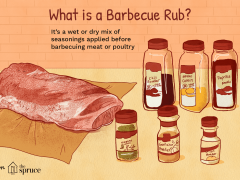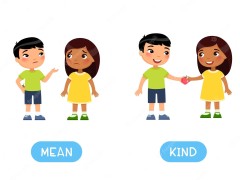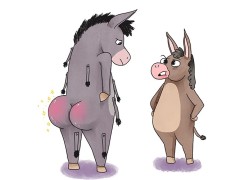leave [liːv] n. 允许
fundamental [ˌfʌndəˈmentl] adj. 基本的
【派】fundamentals 基本原则
【扩】rudimental 基本的 elementary 基本的
* * *
A: Fresh air is fundamental to good health.
B: Yes, that's why I want to live in the country.
A:新鲜空气是身体健康之必需。
B:是的,这就是为什么我想住到农村去的原因。
* * *
glorious [ˈɡlɔːriəs] adj. 光辉灿烂的
【扩】effulgent 光辉灿烂的
* * *
A: How glorious the sunset was!
B: But I think I like sunrise more.
A:日落是多么的辉煌灿烂!
B:但我想我还是更喜欢日出。
* * *
splendid [ˈsplendid] adj. 灿烂的
* * *
A: A happy birthday brings you a most beautiful and splendid year.
B: Thank you for your blessing.
A:快乐的生日,为你带来最美丽、最辉煌灿烂的一年。
B:谢谢你的祝福。
* * *
rub [rʌb] n. 难题
【派】rubber 橡胶
【搭】rub down 磨平 rub out 用橡皮擦掉
* * *
A: We need money badly, but the rub is that no one will lend us any.
B: If you don't want too much, maybe I can help you.
A:我们很需要钱,但困难的是没人借钱给我们。
B:如果你们要得不是很多的话,也许我可以帮你们。
* * *
identity [aiˈdentiti] n. 身份
【扩】identify 鉴定,识别
* * *
A: Please prove your identity.
B: Here is my passport.
A:请证明你的身份。
B:这是我的护照。
* * *
dreary [ˈdriəri] adj. 沉郁的
commitment [kəˈmitmənt] n. 信奉
【扩】belief 信念,信仰
* * *
A: My only commitment is victory.
B: You are a competitive person.
A:我唯一所信奉的就是胜利。
B:你是一个好胜心很强的人。
* * *
mean [miːn] adj. 吝啬的,小气的
【扩】stingy 吝啬的,小气的
* * *
A: She is mean and never invites people to meals.
B: But she still has many friends.
A:她很小气,从不请人吃饭。
B:但她仍然有很多朋友。
* * *
social climber [ˌsəuʃəl-ˈklaimə] 追求更高社会地位的人
devotion [diˈvəuʃən] n. 热爱
* * *
A: Devotion is another factor to success.
B: Right. It's hard for people to get success without it.
A:热爱是成功的另一个因素。
B:对,离开它人们很难获得成功。
* * *
cosmic [ˈkɔzmik] adj. 宇宙的
suburban [səˈbəːbən] adj. 见识不广的,偏狭的
conceited [kənˈsiːtid] adj. 自高自大的
【例】The conceited man feels superior to everyone else.
这位自高自大的人觉得自己比任何人都强。
presumptuous [priˈzʌmptʃuəs] adj. 自以为是的,放肆的
【扩】smug 自鸣得意的
【例】It would be presumptuous for anybody to offer such a view.
任何人提出这种观点都是放肆的。
fatuous [ˈfætʃuəs] adj. 愚蠢的
【扩】asinine 愚蠢的 addlepated 愚蠢的
* * *
A: He said that a career in this line was unsuitable for a woman.
B: It is fatuous to say so.
A:他说这个行当对一个妇女来说是不适合的。
B:说这样的话真愚蠢。
* * *
cliché [ˈkliːʃei] n. 陈词滥调
* * *
A: It is a hoary cliché of management schools that a good boss knows how to listen.
B: Did you do it well in the work?
A:这是一个管理学上的陈词滥调了,一个好的老板应懂得如何倾听。
B:你在工作中做得好吗?
verb [vt. 及物动词]离开(某人或某处);留下;丢下;剩下;遗忘 - He would not be allowed to leave the country.
A.离开
- He has left Beijing.
- When will you leave the hotel?
B.遗留、落
- Please leave the door open. 留着门儿。
- I left my bag on the train. 我把包落在火车上了。
noun [抽象名词]基本面;基本原理(fundamental 的复数) - They agree on fundamentals, like the need for further political reform.
adjective [原级]光荣的,值得称道的;辉煌的,绚丽的;极其愉快的;(天气)阳光灿烂的 - Harrison had a glorious career spanning more than six decades.
adjective [原级]极佳的,非常好的;壮丽的,灿烂的,辉煌的;(一段时光)令人愉快的 - The book includes a wealth of splendid photographs.
interjection [惊讶](表示赞许或满意)好极了,痛快 - I have heard him tell people that we get along splendidly.
verb [vt. 及物动词]擦,磨擦;揉擦,按摩(尤指疼痛部位);擦痛,磨损;涂,抹;摹拓,拓印(黄铜碑或墓石的)碑文;(滚木球)(球)受阻,转向;(使)相互摩擦,搓;把(配料)揉擦进(混合物)(rub sth. in/into/through) - It should be comfortable against the skin without rubbing, chafing, or cutting into anything.
noun [具体名词](用手或物体)擦,揉;按摩膏,面膜;<正式>困难,问题(the rub);<美>(烹饪肉之前涂抹在肉表面的)混合香料;(球)受阻,转向;磨损处 - She gave her knee a quick rub.
noun [专属名词]身份,本体;个性,特性;同一性,一致;恒等运算,恒等式 - The identity of a person or place is the characteristics that distinguish them from others.
adjective [原级]沉闷的,令人沮丧的 - His old dreams had been so pleasant; but this reality was so dreary!
noun [抽象名词]忠诚,献身;承诺,保证;奉献,投入;热情,决心;义务,责任;花费,使用(资金、时间、人力);需要定期支付的款项 - We made a commitment to keep working together.
verb [vt. 及物动词]意味着;表示…的意思,作…的解释;打算,意欲;使专门用于;导致,结果是;十分熟识;当真,说到做到;对某人重要 - What does "evidence" mean?
adjective [原级]吝啬的,小气的;不善良的,刻薄的;要发怒的;熟练的,出色的;平均的;简陋的,破旧的;微薄的;<旧>出身卑贱的,社会地位低下的;中庸的,中等的;<美>凶狠的,好斗的 - The little girls had locked themselves in the room because Mack had been mean to them.
noun [抽象名词]中庸,折衷;平均数,中数;中间点 - Take a hundred and twenty values and calculate the mean.
表示意思或含义:
- What does this word mean? (这个词是什么意思?)
- The symbol '+' means addition. (符号“+”表示加法。)
表示打算、计划或目的:
- I mean to finish this project by tomorrow. (我打算在明天之前完成这个项目。)
- What do you mean by that statement? (你这个说法是什么意思?)
表示引起后果或结果:
- Careless driving can mean accidents. (粗心驾驶可能会导致事故。)
- Being late could mean losing the job. (迟到可能意味着失去这份工作。)
表示对某人有某种意义或印象:
- He means a lot to me. (他对我来说很重要。)
- This painting means nothing to me. (这幅画对我毫无意义。)
表示平均数:
- The mean of these numbers is 8. (这些数字的平均数是8。)
表示中间值(在统计中常用的概念):
- The median is the middle value, but the mean is the average. (中位数是中间值,但平均数是所有值的平均值。)
表示目标、意图或目的:
- What is your main mean in doing this? (你做这件事的主要目标是什么?)
当"mean"作为形容词时,它通常有贬义的含义,表示刻薄的、自私的或恶意的。以下是关于"mean"作为形容词的用法:
刻薄的、恶意的:
- She made a mean comment about his appearance. (她对他的外表发表了恶意的评论。)
- Stop being so mean to your little sister. (别对你妹妹那么刻薄。)
吝啬的、小气的:
- He's too mean to share his food with others. (他太小气了,不愿意和别人分享食物。)
- The boss is known for being mean with bonuses. (这位老板因为奖金分配小气而出名。)
当"mean"作为副词时,它的主要含义是“中等地”或“不友好地”。以下是关于"mean"作为副词的用法:
中等地、适度地:
- She sings neither too softly nor too loudly, but just meanly. (她唱歌既不太轻也不太响,而是适度地。)
- The temperature stays meanly warm throughout the year. (温度整年保持适度的温暖。)
不友好地、刻薄地:
- He looked at her meanly, as if he despised her. (他刻薄地看着她,好像鄙视她一样。)
- The children were laughing meanly at the boy's misfortune. (孩子们刻薄地嘲笑着那个男孩的不幸。)
需要注意的是,"mean"作为形容词和副词的用法在口语中更常见,在正式写作中较少使用。根据具体语境,它们可以表示人的行为态度或某事物的程度。
noun [专属名词]社交攀登者:试图在社交界获得更高社会地位或在时尚社会中获得认可的人。 - That Rob was a snob and a social climber could not be denied.
noun [抽象名词]挚爱,忠诚;奉献;(宗教的)虔诚;祈祷,礼拜 - At first she was flattered by his devotion.
adjective [原级]宇宙的,外层空间的;巨大的,极重要的;精神的,神灵的 - Cosmic means belonging or relating to the universe.
adjective [原级]郊区的,城郊的;平淡乏味的,乡气的,平庸的 - ...a comfortable suburban home. …
noun [专属名词]郊区居民 - They would also terrorize and kill dogs and cats which is not what the suburban dwellers have in mind.
adjective [原级]自负的,骄傲自大的 - I thought he was conceited and arrogant.
adjective [原级]专横的;放肆的;冒昧的 - It would be presumptuous to judge what the outcome will be.
adjective [原级]愚蠢的,愚昧的;错误的;未经认真考虑的 - The Chief was left speechless by this fatuous remark.
noun [抽象名词]陈词滥调;使用陈词滥调;平庸之人;平庸之物;[印刷] <主英>铅版,铅版印刷;电版,电版印刷物 - To use a well-worn cliche, it is packed with information.
















